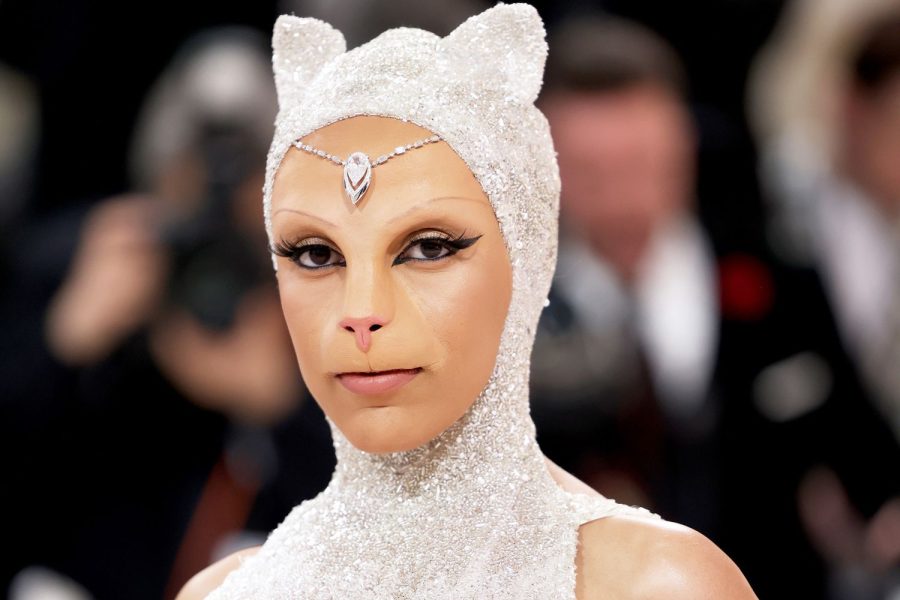Met Gala Controversy: Karl Lagerfeld
May 18, 2023
When the Met Gala’s theme was announced most spectators were rightfully confused at the vague concept. “In honor of Karl Lagerfeld” was plastered along the walls as latest celebrities strut their stuff all the while the average viewer is left to wonder, who is Karl and why is he so important? Born in Hamburg, Germany in 1933, Lagerfeld is best known for his work on Chanel from the 80’s to the 2010’s, credited as the revival of the esteemed French brand. With such works as the 1992 Haute Couture and the experimental collection in fall 2005 there is no wonder as to why his works are so highly regarded. However the point has been raised as to whether his fashion and memory should outweigh his wrongdoings.
One of the main critiques of Lagerfelds is his continual dismissal and at times hatred of plus size individuals. This denouncing of plus size and even average size models, women especially, is quite evident in the interview with Focus in 2009, saying “No one wants to see curvy women.” in reference to the criticism of his size requirements, often at zero. Continuing to say “You’ve got fat mothers with their bags of chips sitting in front of the television and saying that thin models are ugly.” This said all in defense of his notorious size zero requirements measuring in at 24 inches in the waist, while the average size small is at 30 inches. Even still, size is not the only uniform subject in his models as the vast majority of people wearing the couture are white or white-passing. Such an outdated manner of employment should not be excused for the time period, and at the very least should be recognized as complacent in racist ideologies despite others more than willing to advocate for what they believe in.
Lagerfeld’s offensive viewpoints don’t end there however, in light of the #Metoo movement in 2018, Lagerfeld stated in opposition to new regulations in modeling saying, “If you don’t want your pants pulled about, don’t become a model! Join a nunnery, there’ll always be a place for you in the convent,” The out of touch and inappropriate public statement makes many wonder what is said behind closed doors when regarding such a continually oppressed by their employees. In the world of fashion, cultural appropriation is a recurring topic that is brought to light in many different shows and designers. And although Lagerfeld is not nearly as dependent on misrepresentation as others are, he has had his fair share of accusations when it comes to his collections. Sacred Muslim texts in-scrawled on the “exotic” Chanel dress in 1994, and “rap inspired” chains in the 1991 fall collection although tame compared to others is not to be ignored especially when such a figure is eternalized in such a way that is the Met Gala. And this proclamation is just as relevant to all of Karl’s actions, in fact to all older or problematic celebrities, we as an audience should both embrace their positive impacts on the industry and address their wrongdoings.


